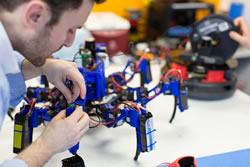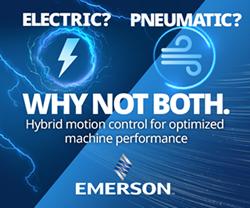A Swarm Of 3D Printing Spiders Could Build Your Next Home
 IDO LECHNER for PSFK: Watching an object being 3D-printed is a spectacle to behold; the speed at which intricate geometries unfold before your eyes is enough for anyone to reckon that this is the future of manufacturing. While both consumer-grade models and more advanced versions are capable of whipping up objects made from different materials, each with their own aesthetic and subsequent properties, the scale of what can be fabricated is entirely based on the size of the printer at use. For this reason, a research team based out of Siemens’ Corporate Technology’s Princeton campus has developed mobile 3D printers in the shape of spiders, which are both autonomous and capable of working in sync to expedite the printing process.
IDO LECHNER for PSFK: Watching an object being 3D-printed is a spectacle to behold; the speed at which intricate geometries unfold before your eyes is enough for anyone to reckon that this is the future of manufacturing. While both consumer-grade models and more advanced versions are capable of whipping up objects made from different materials, each with their own aesthetic and subsequent properties, the scale of what can be fabricated is entirely based on the size of the printer at use. For this reason, a research team based out of Siemens’ Corporate Technology’s Princeton campus has developed mobile 3D printers in the shape of spiders, which are both autonomous and capable of working in sync to expedite the printing process.
PSFK spoke with Siemens’ Director of R&D of Engineering Livio Dalloro on why the team decided to shape their printers like spiders, the implications such a technique might have on the industry, and how Siemens sees the device unfolding in the foreseeable future. Cont'd...
Featured Product

